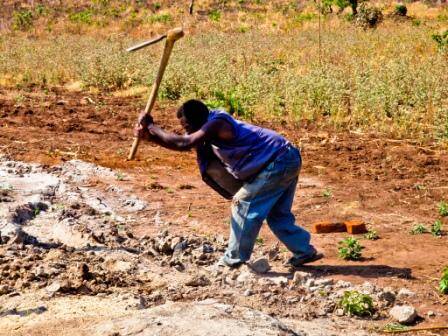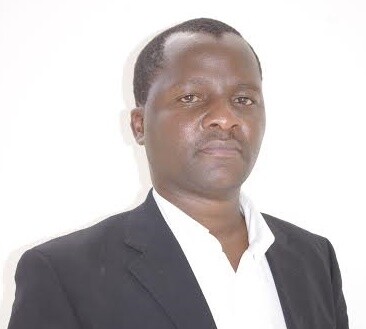
The Reducing Emissions from Deforestation and Forest Degradation program, or REDD+, has been the international community’s first real attempt to create a global forest governance system which would impact countries on national, regional and even local scales.
Malawi has been working in earnest on a national REDD+ programme – the Malawi REDD+ Program (MRP) – since 2012.
Currently, the key planning document for the MRP is the Government of Malawi REDD+ Action Plan 2014-2019.
Despite being taken as a measure to address the problem of climate change to prevent catastrophes, the Reducing Emissions from Deforestation and Forest Degradation (REDD+) initiative has been regarded by some people as a burden to poor citizens for the country who rely on unfriendly activities to the environment to earn a living.
Some people in the country, earn a living by cutting trees, for charcoal and firewood business contrary to the goals of REDD+, that were designed for urgency of addressing the problems associated with climate change to sustain livelihoods of all Malawians.

It cannot be a denied fact that Malawi has suffered the effects of climate change; the 2015 floods and persistent dry spells that affected food production for the citizens are some are some of the serious issues that REDD+ projects try to prevent.
However, to a man like Amos Phiri, who sees forests as a saviour to save him from chains of poverty perceive REDD+ as an enemy.
Phiri, a resident at Chileka Township in the commercial city of Blantyre, who is a charcoal burner narrates his story on how he feels about projects and laws that prevents him from earning a living.
“I have to be honest with you, I feel bad for any law or projects, they block my way to earn a living, every time I meet forest officials who prevent us from cutting trees I feel bad looking at the problems I need to solve with the same trees they are stopping me from cutting,” said Phiri.
He further explained having knowledge on effects of making the ground bare, he puts the blame on poverty, with the country’s economy that is stuck, the solution to his problems is axe on trees.
“I know that what am doing is bad, we have been experiencing floods, having no food because of droughts and we are told that all that is due to our cutting down of trees, but I have no choice, my life is driven by charcoal burning so that I can buy food for my family,” he added.
In its daily strides to address high environmental degradation rate and dealing with devastating effects of climate change, South Zone confiscated 1,622 charcoal bags between November and December last year.
South Zone Forestry Enforcement Officer, Irate James Mlonda told Malawi News Agency that his office conducted 138 patrols during the stated period where 1,622 charcoal bags and 272 planks were confiscated; 4 vehicles impounded and the culprits have since been brought to book.
“The South Zone Forestry Office which consists of 17 stations; 9 of which are district forestry offices; 7 government plantations and 1 Zonal Office is so committed to reclaiming the region’s lost glory of being an evergreen one; fully stocked with indigenous, exotic and a variety of fruit species”
“Alas, this is not the case now due to factors too numerous to enlist, but some of the key and notable ones include: ongoing enormous urbanization rate in all the region’s trading centres, districts, towns and cities in search for employment, investing in businesses and other ventures, seeking better social and basic amenities and services as opposed to rural set ups; seeking energy and fuel in the form of firewood and charcoal amongst others,” he said.
He confirmed that man-made environmental-unfrie-ndly activities have led to high environmental degraded area to the once forested and well stocked haven, thereby declaring it almost bare and no longer attractive to watch and boast as an evergreen and clean environment.
He added: “high demand of firewood and charcoal; beside timber which is becoming another hot cake in town due to a variety of building projects currently underway are some major contributor to the deforestation.
He further shed more light that his office does not aim at physical fighting with those whose charcoal bags have been confiscated or vehicles impounded, but to intensify sensitization campaigns such that with time people become more civic educated and civilized than before.
However, this is no mean achievement considering that most of the culprits rounded up on quarterly basis claim the environmental malpractice as their main occupation and sure way of economically empowering their family set ups in their respective societies in the region.
But according to research done both locally and internationally, REDD+ has negative effect on forest -dependent communities. Many studies confirm that forest-dependent communities are not sufficiently involved in current REDD+ projects.
Furthermore, current and potential impacts of REDD+ on communities often disrupt local peoples’ livelihoods and strategies, institutions and socio-cultural systems in various ways, such as unequal benefit sharing, food insecurity, introduction of new powerful stakeholders, illegal land acquisition, unfair free prior and informed consent, and the introduction of monoculture plantations.
REDD+ is also perceived as a neoliberal mechanism which renegotiates peoples’ relationship with the natural environment by monetizing nature and journalists under the aegis of the CSE Media Fellowships Programme, journalists are being encouraged to police the sector by writing more.
The research suggests a holistic approach to REDD+ implementation, which incorporates forest-dependent communities’ often complex relationship with the natural environment, such as incorporation of traditional forest management systems and provision of viable alternatives to loss of agricultural land.
However an environmental analyst Godfrey Mfiti explained to the contrary arguing that the catastrophes affect the general public and property worth billions is lost hence a need to have such projects that can protect the environment.
“For instance Malawi has not fully recovered from the 2015 floods, some infrastructures are yet to be re-built, talking of roads, bridges, in just mentioning some. Am not denying the fact that Malawi is poor and some people earn a living through charcoal and firewood selling but what we should all keep in mind is that there can be another way round to help people from poverty. “If we can stop cutting trees, people have good rains and government has showed interest to support farmers, this can be one way that the country can save its people from poverty, first they can have adequate food for their families, secondly they can have a surplus that can be sold for other needs,” said Mfiti.

Mfiti further applauded the initiatives that work in protecting the environment arguing poverty should not take the country to the dishonoured future where people are to suffer the effects of man-made activities on the environment.
The Government of Malawi recognized that Global Climate Change has serious implications for the country. Globally, climate change has been recognized as one of the biggest challenges facing humanity.
Even though Malawi’s contribution to greenhouse gas emissions is low on a global scale, however, Malawi’s unique and fragile ecosystems are particularly vulnerable to the impacts and effects of climate change, thereby negatively affecting the livelihood of Malawians.
This vulnerability is exacerbated by Malawi’s socio-economic and demographic factors such as slim economic base, dependence on rain-fed agriculture greater reliance on biomass energy, and low adaptive capacity at the community and national levels.
Besides, REDD+, the country has also embarked on initiatives that are friendly to the environment where among others, tree planting exercises are encouraged and ensuring that trees are given much protection by using Malawi Defence Force (MDF) in forests.
The initiative has since been applauded as some stakeholders arguing that the pride of forests in the country is being restored.
However some people argue that the use of solders to protect the forest has negativity affected rights of people due to excessive use of force by the MDF.














